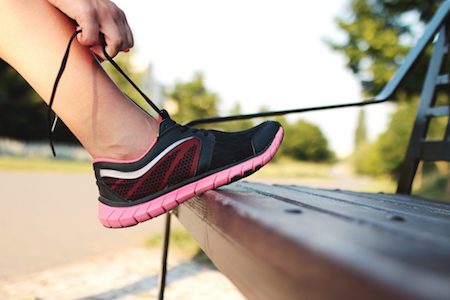12 for Twelve
Running Training & Recovery – Part 2: NUTRITION
by our Naturopath, Diane Pascoe
Signed up to the HBF Run for a Reason since Madeleine and Bob’s first post in this series? Congratulations, and welcome to the third blog post in the 12 for Twelve run series!
 Two of the most important, but poorly understood and often overlooked, components of successful running training recovery are sleep and nutrition.
Two of the most important, but poorly understood and often overlooked, components of successful running training recovery are sleep and nutrition.
As luck would have it, two of Madeleine and Bob’s favourite things in life just so happen to be eating and sleeping! So we thought we’d delve a bit deeper into these topics and how they relate to running over the next few weeks.
It is so important to have the right fuel for training and recovery…
Optimal nutrition not only helps to reduce the risk of injury and illness, but also helps you to perform your best on the day!
Nutrition for Training
There’s a lot of negative information about ‘carbs‘ (or carbohydrates)…but, when training intensely and participating in endurance events, carbs such as white rice and toast need to be embraced (by those who can tolerate them) as they are the best source of energy, and they “burn cleanly”.
Basically, the glucose from the carbs combines in the body to form glycogen, which is then stored in the liver and muscle fibres. Glycogen stores will break down as you exercise to provide energy.
Getting into the swing of things in preparation for the race, a particular amount of carbs need to be consumed daily depending on how much you are training and how much you weigh. According to the International Society of Sports Nutrition (2013), if you’re training 5-7 hours per week, your body will need 4-6 grams of carbohydrate per kg of body weight per day.
Carbs such as leafy greens really aren’t enough when training, so white rice, sweet potato and grains are often the best. This doesn’t suit everyone, though, and you may prefer to get ideas from the book “The Paleo Diet for Athletes” by Loren Cordain PhD.
Some individuals just can’t handle food in their stomach prior to training… and there are actually some benefits to fasting prior to training for certain individuals – according to a study in the Journal of Physiology, as long as a meal is eaten straight after exercise, fasting beforehand can actually have beneficial effects on insulin sensitivity.
If you’re training for less than an hour, you may choose to eat nothing beforehand, or opt for a small snack such as a banana or some toast. If you’re going to be training for longer than longer than a 1 ¼ hours, it is best to eat beforehand.
When training for longer than 1 ½ hours at a time, it’s recommended that you refuel during the session, too. On many levels, the body can become depleted – for example, women who train vigorously and have a very low carb diet can have menstrual irregularities.
Post exercise, nutrition is needed to replenish the body, assist in the repair of damaged tissue, promote muscle gain, and support the immune system. The body will have lost fluid, electrolytes and depleted glycogen stores so it’s important these are replaced, and relatively quickly – not eating within the half hour after exercise will cause fatigue.
While the body is recovering, it is also necessary to consume protein, as this has an important role in muscle repair. In general, while training for the run, protein should be consumed at regular intervals throughout the day: the Australian Institute of Sport and the International Society of Sports Nutrition recommend 1.4-2.0 g per kg of body weight per day.
Take notice of how you feel, and if your current diet is working for you and you feel great – don’t change it!
On the Day
Eating prior to the big event, you will want to include carbs, but not too much fibre or other foods that can take a while to digest. Some good meal ideas are: a smoothie with low-fat milk, low-fat yoghurt and fruit; cereal with low-fat milk; toast with banana and honey.
Be sure to eat 2-3 hours before you hit the start line, and, in the hour before the run, only drink water.
Individuality is really important; you must do what works for you and don’t eat or do anything new just before, or during, the big day. Different people respond in different ways, and you definitely don’t want a nasty gut ache or “reaction” partway through the event! Only eat and drink what you have trialed during your training.
To all of those running in this year’s HBF Run for a Reason: good luck!